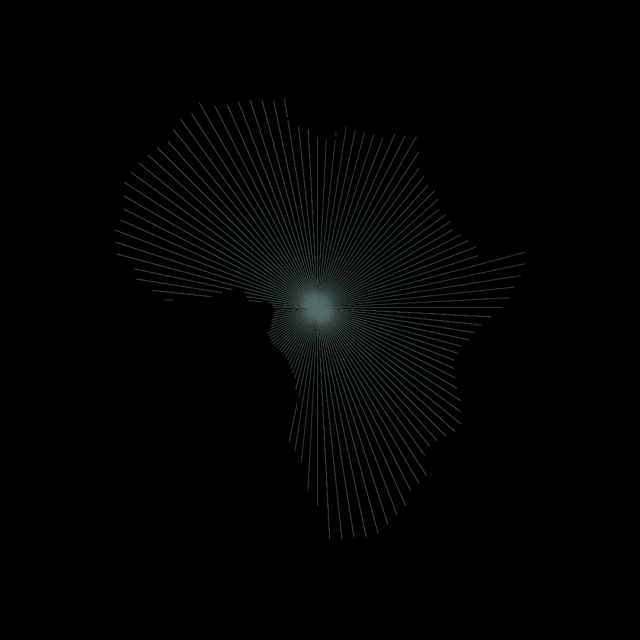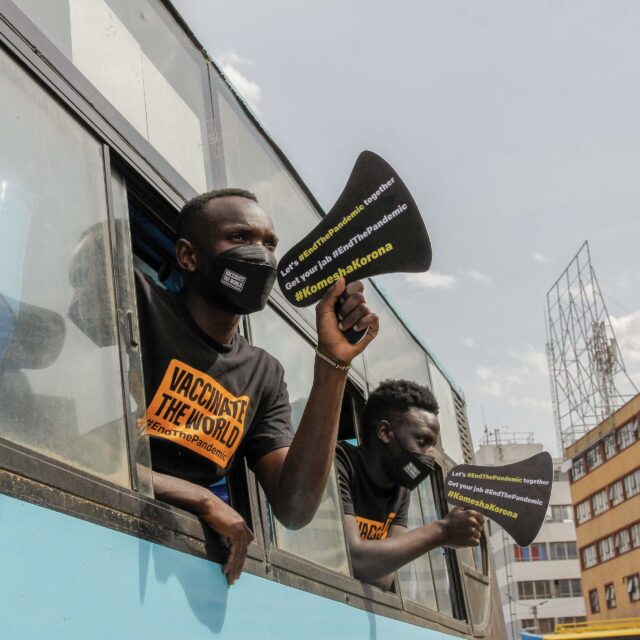Why do certain books make it to our desks, libraries and book shops over others? On International Book Day, we take a look at the progress made by African publishers.
More and more African authors are being praised and winning awards around the world, taking indigenous knowledge and original African thinking beyond the continent. So, why is African book publishing still underdeveloped?
Unique challenges
Publishing got off to a slow start. Colonial rulers passed laws to make sure they owned the rights to any books written by African authors. It wasn’t until countries started gaining independence in the 1970’s and 1980s’, that African publishers could finally start to own their stories.
But there are still challenges ahead. A lot of knowledge is passed on orally from generation to generation, so many fascinating stories haven’t spread beyond villages, regions or countries. African authors are now writing down these stories and oral histories. In Thunder Mountains Mau Patriotic Songs, award winning author and political refugee Maina Wa Kinyatti, captures for the first time in English the songs sung by the Mau Mau in the villages and forests of Kenya as they fought against British colonialism in the 1950s.
It’s important that people are able to read and share their own stories and histories. So, with hundreds of different dialects and languages across Africa, books need to be published in the original language as well as in English.
Devil on the Cross (1982) was first written by Ngugi wa Thiongo in the Agikuyu language spoken by the largest ethnic group in Kenya. It tells the tragic story of Wariinga, a young woman who moves from a rural Kenyan town to the capital, Nairobi, only to be exploited by her boss and later by a corrupt businessman. As she struggles to survive, she discovers that much of her misfortune stems from Western, capitalist influences on her country.
Perhaps the biggest challenge is lack of infrastructure, such as roads for transportation and reliable communications to market and promote new authors and books. The African Book Collective (ABD), is a great solution. ABD was set-up by 154 African publishers to market and distribute African books worldwide. Check them out, to find many of the books that are showcased here and lots more.
Publishing in Africa is still in its infancy, but with the help of publishing associations, such as in Nigeria, Ghana and South Africa, they are rapidly working-out how to best overcome its unique challenges and shape its identity.
A new chapter
Today, publishing in Africa is worth in excess of US$1 billion and is growing fast at about 6% a year. But this is still small when compared to the US$15 billion made by the industry in the United States in 2016.
Publishing in South Africa is the largest, most diverse and technically advanced on the continent. Attracting foreign investment, it has had huge economic benefits.
Another success story is in Zimbabwe. Despite the economy slowing down, many publishing houses have developed, such as Mambo Press, College Press, Longman Books, Baobab Books, Prestige Books and Zimbabwe Publishing House.
Excitingly, small, often family-run, publishing houses in Zimbabwe are flourishing. Weaver Press, run by Irene Staunton and her husband is one to watch. They recently published We Need New Names by NoViolet Bulawayo (the pen name of Elizabeth Zandile Tshele). It’s the story of Darling who lives in a squatter camp in Bulawayo, Zimbabwe’s second largest city. This young girl tells us about her world: the friends she plays with, the adults hoping for ‘real change’; the shame she feels when her father returns home from the mines of South Africa with AIDS; the extortionist prophets who prey on people’s fears and many more anecdotes that pull the reader into life in her village.
Publishing houses are also emerging in Kenya, Ghana and Nigeria. Such as the Nigerian publisher Cassava Republic Press, which along with their offices in Lagos has just opened an office in the UK. Sarah Ladipo Manyika, a Nigerian writer, chose Cassava instead of a UK publisher because she felt they ‘have proved themselves savvy and diligent custodians’ of her work.
Her book, Like a Mule Bringing Ice Cream to the Sun, tells the story of Morayo Da Silva, a Nigerian woman living in San Francisco, USA. Almost 75 years old, she has an enthusiasm for life and enjoys road trips in her vintage Porsche. But when Morayo has an accident, crushing her independence, she is prompted to reassess her relationships and recollect her past life and loves.
Africa has a long and rich history of oral storytelling. Over the last few decades African authors have begun writing down these stories, and African publishers are now bringing them to readers around the world. So, the next time you’re looking for an inspirational read, don’t forget to check-out what Africa has to offer.



